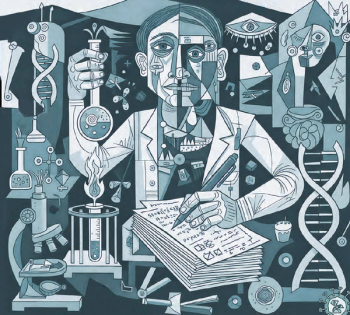
Course of COVID-19 Likely to Go Long
PASC (postacute sequelae of COVID-19) was found to persist for at least 6 months in more than half of those contracting the infection.
"Long COVID" persisted for at least 6 months after recovery in more than half of over 250,000 survivors assessed in a systematic
Paddy Ssentongo, MD, PhD, MPH, Center for Neural Engineering, Department of Engineering, Science and Mechanics, The Pennsylvania State University, State College, PA, and colleagues conducted the review to estimate the overall and organ system-specific frequency of PASC.
"As we better understand the disease burden of PASC in COVID-19 survivors, we can develop precise treatment plans to improve clinical care in patients with COVID-19 who are at greatest risk of PASC and establish integrated, evidence-based clinical management for those affected," Ssentongo and colleagues opined.
In discussing the findings with Contagion, Ssentongo elaborated on their hope for improved approaches to PASC,"Machine learning models that use genomic, clinical, and socio-demographic information to predict patients with PASC will prove to be useful in guiding precision medicine," he said.
The investigators screened a total of 2,100 studies, with 57 meeting inclusion criteria containing 250,351 survivors of COVID-19, of whom 79% (197,777) had been hospitalized for the acute infection. The studies included randomized clinical trials, prospective and retrospective cohort studies, case series with at least 10 patients and case-control studies with reported PASC frequencies.
The median (interquartile range, IQR) of COVID-19 survivors experiencing at least 1 PASC was 54.0% (45.0-69.0%; 13 studies) at 1 month; 55% (34.8-65.5%; 38 studies) at 2 to 5 months; and 54% (31.0-67.0%; 9 studies at 6 or more months.The most common sequelae were pulmonary abnormalities, impaired mobility, neurologic and mental health disorders.
Persistent dyspnea was found in 29.7% (14.2-37.0%; 38 studies) and cough in 13.1% (5.3-22.6%; 26 studies).Increased oxygen requirement was reported in nearly two-thirds of survivors (65.0% (39.3-76.1%; 3 studies). Functional mobility declined in 20.2% (14.9-30.6; 6 studies) and exercise tolerance was reduced in 14.7% (10.6-18.%; 2 studies).
Neurological symptoms included difficulty concentrating in 23.8% (20.4-25.9%;4 studies), with other common symptoms including headaches, memory deficits, and cognitive impairment.Mental health disorders diagnosed after acute infection included anxiety in 29.6% (14.0-44.0%; 7 studies); sleep disorders in 27% (19.2-30.3%; 10 studies); depression in 20.4% (19.2-21.5%; 2 studies); and post-traumatic stress disorder in 13.3% (7.3-25.1%; 9 studies).
Ssentongo considered the question of whether neurologic disorders, as a possible direct effect of SARS-CoV-2, should be distinguished as a component of PASC from mental health disorders which can follow other serious illnesses, particularly in the context of a pandemic.
"It is plausible that the effects of the SARS-CoV-2 virus on the brain—either direct cytolytic effect or neuronal damage through indirect systemic effects such as secondary inflammatory response—can induce the reported mental health disorders," he indicated."Of course, future studies are necessary to delineate the psychological effect of the pandemic and the direct effect of the virus."
The investigators emphasize the importance of recognizing, not just the life lost from acute COVID-19 illness, but the disease burden experienced by so many due to PASC.They suggest that clinical management of PASC will require "a whole-patient perspective", with management tools like virtual rehabilitation platforms.They also recommend increasing the availability of "one-stop multidisciplinary clinics" to address the complex clinical presentations and avoid sending these patients on multiple referrals.
Ssentongo acknowledged, however, that such comprehensive approach to PASC is difficult within health care systems that have been exposed in the COVID-19 pandemic as often disjointed and inequitable.
"Similar to the barriers that exist in traditional physical medicine, PASC treatment centers and clinics may be concentrated in urban areas," he observed."Therefore, traditional health care disparities may perpetuate in PASC treatment. Nevertheless, establishing these clinics will steer us in the right direction in treating PASC."
Newsletter
Stay ahead of emerging infectious disease threats with expert insights and breaking research. Subscribe now to get updates delivered straight to your inbox.

































































































































